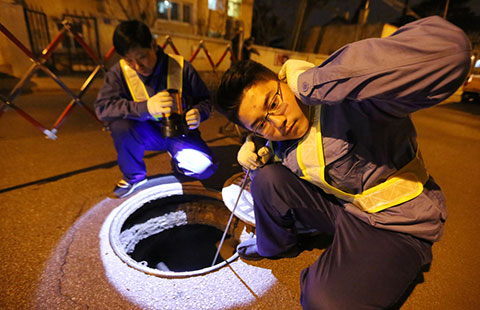A-share liberalization to boost confidence
A shares were previously off-limits to foreign individual investors. They were only allowed to trade B shares in US dollars in Shanghai, or in Hong Kong dollars in Shenzhen.
China has increased quotas for foreign institutions, pushed for higher dividend payments, tightened rules on de-listing companies and cut trading costs to boost the stock market, which has long been performing below expectations.
A survey by the China Securities Investor Protection Fund shows that investors have become more pessimistic over the prospects for the country's stock market, with an investor confidence index compiled by the fund dropping to 56.8 percent in March, 7.9 percentage points lower than in February.
The mainland stock market fell slightly on Monday after local governments announced detailed plans over the weekend to curb the property market, implementing the central government's regulatory plan announced earlier last month.
The Shanghai Composite Index fell 0.1 percent to 2,234.40. Turnover was 67 billion yuan ($10.8 billion), down from 73.4 billion yuan on Friday, as the three-day Qingming Festival holiday approaches.
Zhan Shihua, an analyst with Zheshang Securities, said: "The mediocre economic recovery, concern over tightening policies to curb the property market, and also resumption of IPOs are the main factors that led the correction of the market."
A report released by CITIC Securities on Monday said: "Considering that investors' expectations on an economic recovery and on monetary policy are both becoming neutral, we think it is most likely that the Shanghai Composite Index will fluctuate in a range from 2,100 to 2,500."
xieyu@chinadaily.com.cn

















